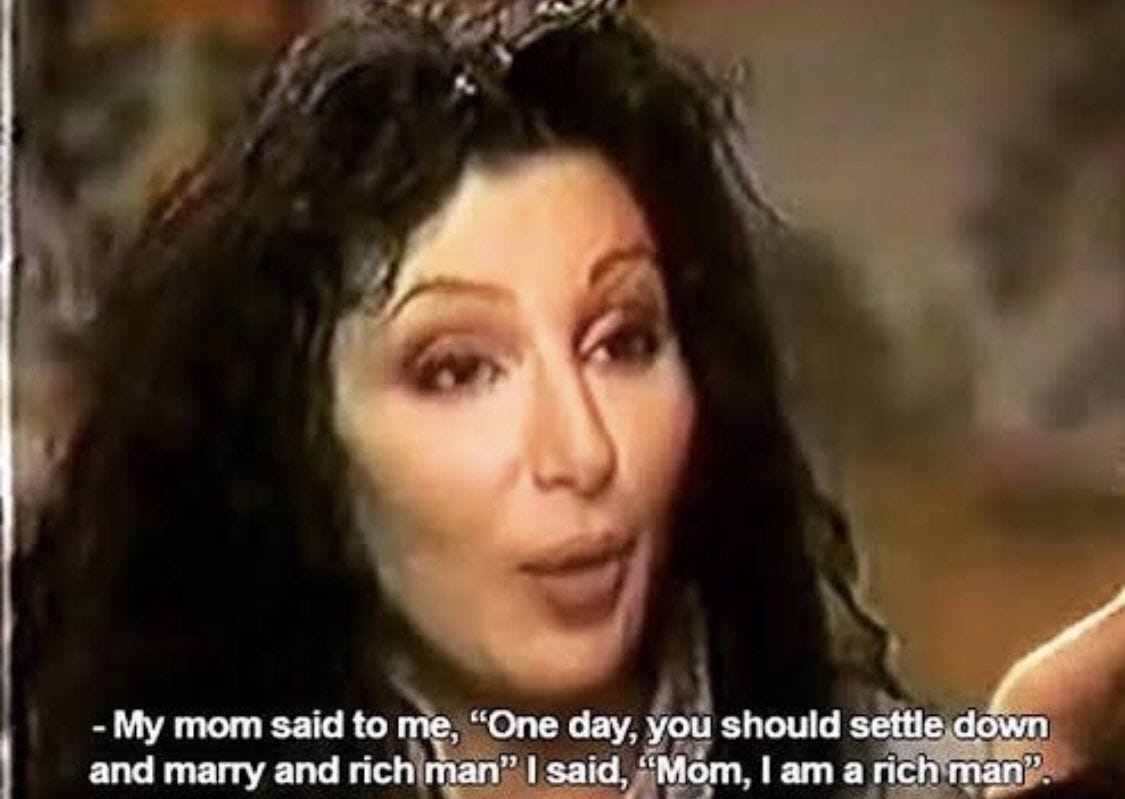Welcome to Ten Dollar Latte! I’m not a financial advisor, just a 27-year-old trying to afford life in NYC. I write about how I spend my money while enjoying a $10 latte.
“Girl math” has been around for almost a year now, and the trend won’t die. Take it from the notification I got from Classpass the other day:
I feel qualified to discuss “girl math” for two reasons:
I am a girl (read: 27-year-old woman)
I am good at math (read: once upon a time, I took Differential Equations and Linear Algebra)
Girl math started last summer on TikTok as a way for women to justify purchases. Some phrases that might be accompanied by “girl math” are:
“If you pay with cash, it’s free”
“If you return something, you made money”
“Buying tickets (or anything else) in advance means it’s free the day of”
“If it’s on sale, you made money”
“Anything under $5 is free”
And in my own life, there are some recent purchases I’ve made that might be classified under “girl math.” The $151.17 I spent stocking up on household goods at Target, priced so high so I could add enough to cart to use two coupons. The $42.00 planner I bought from The Line because I had a free shipping coupon (and a planner should save me money in the long run if I use it correctly, right?). The beer I bought at happy hour last Friday, purchased with a ten dollar bill.
At first, it’s an innocent internet trend, but if you think more about it, it’s like, what?! Why is this gendered?
Personal finance is already a topic where gender is at play. For one, it wasn’t that long ago that women couldn’t have their own personal finances outside of a man. Women couldn’t open bank accounts or have credit cards until 1974.
I’m hyper-aware of the cultural impacts this has had—if I had a dollar for every time a friend (or even me) has joked about marrying rich, then, well, none of us would need to marry rich (we’d have it all in $1 bills).
Women and men are taught different things when it comes to money, much of which is driven by that history. While women are often taught to save, men are taught to make more money. And men and women, in general, need and use money for different things—women often miss out on more of their career earnings when having children, women live longer and thus need more money for retirement, and more women are going to college, and thus, going into more student loan debt.
And men and women do, in general, think different things about money. Studies have shown that women are better investors, but take less risk. This is because of the same reason why men apply for more jobs they’re unqualified for, while women often wait until they can check every bullet in a job description—men can be more confident.
And that’s why “girl math” bothers me. It’s belittling women’s abilities to manage their finances: to budget, to invest, to spend intentionally. And it especially bothers me when it’s used in an attempt for companies to sell more (I’m looking at you, Classpass).
“Girl math” should be about spending intentionally, living generously, and saving wisely. There are some other money moves I’ve made recently that wouldn’t be classified under “girl math” (but were all done by a girl, me, who can do math). The $53 I spent on train tickets to visit family last month. The $57.30 I spent treating my sister to dinner and drinks earlier this month. The 5% of my paychecks I contribute to my 401K each month.
Share yours in the comments: your “girl math” money moves and your alternative “girl math” money moves.
Odds & Ends
Submit a question to my financial advice column here (I’m not a financial advisor, this is fun advice like how to split the bill on a group trip)!
Check out my party card game company, Sidetracks.
If you liked this post, you might enjoy:
Thanks for reading! I post weekly about personal finance and lifestyle in NYC. I also post a monthly reset on the 1st of each month sharing everything I spent money on the previous month and goals for the next month.











I heard on a podcast the other day that it wasn’t until 1988 that women were allowed to own their own business without men co-signing their business loan. 1988!!
I needed to read this hot take. Thank you for sharing your thoughts!
Oof, I remember the first time I heard "girl math" and I was surprised that we were cool with it. In a world where we get offended about everything, this actually suggests girls are dumb, and it still surprises me that it got picked up and is so casually used.